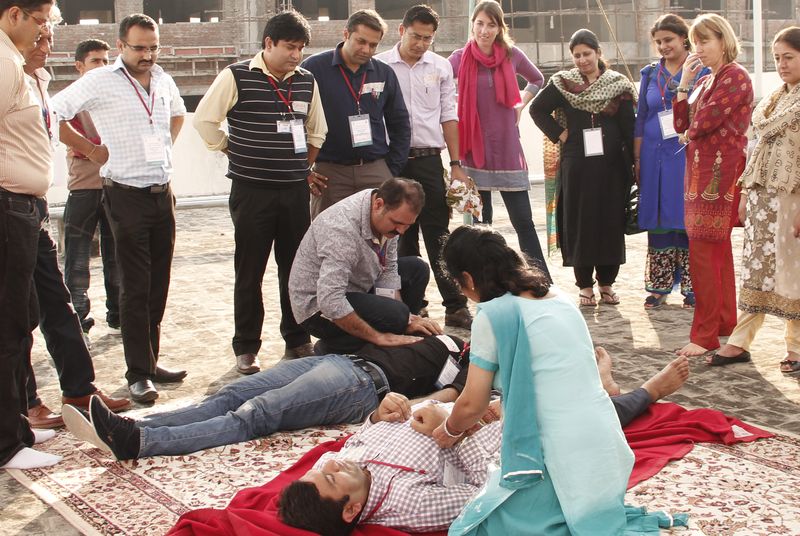There are days when patients who need emergency care cannot make it to the hospital in time. This could be either because the medical facility is very far, or transport is not available and in such situations, even seemingly small concerns pose big challenges which could result in loss of life. When patients in these situations do survive, it is often because they had access to a basic life support (BLS) system.
While BLS is the most fundamental aspect of effective emergency response, in the wake of limited resources and paucity of time, first responders often find it difficult to provide immediate assistance. As much as it is about possessing theoretical knowledge and skills, providing BLS equally depends on having practical experience and presence of mind.
To develop and strengthen the preparedness of medical professionals in different scenarios therefore, the health authorities in Jammu and Kashmir, together with the ICRC, conducted sustained BLS trainings as well as Emergency Room Trauma Course (ERTC) workshops over the past two months.
BLS helps doctors as well as first responders from communities to be able to assist the wounded and sick in the absence of medical facilities. Twenty-three participants – including doctors from Jammu and others from the India Red Cross Society and an NGO, ‘Doctors for You’ – attended the workshop, which was conducted by the Directorate of Health Services Jammu (DHSJ), Government Medical College (GMC) Jammu, and the ICRC. This initiative has strengthened pre-hospital care and as a result of regular follow-ups, a core group of skilled instructors has been formed. This pool that was so formed is now disseminating the acquired BLS skills to a vast majority of first responders from the communities.

ICRC BLS expert, Felicity Gapes, interacts with doctors from Jammu at the Gandhinagar Hospital, Jammu. ©ICRC
Felicity Gapes, an ICRC BLS expert, exposed participants to practical hands-on training which she said is the most effective and interactive method. She also underlined that confidence to act during any emergency requires the right attitude which comes with practice and not necessarily by just having a healthcare background. Director of the Directorate of Health Services Kashmir, Dr. Samir Mattoo, who was present at the follow-up session at the Regional Institute of Health and Family Welfare Dhobiwan, highlighted the importance of the trainings and encouraged participants to utilise and build upon the knowledge and skills they have acquired.
Reducing Trauma-Related Injuries
The ERTC – an advanced training session on life support and trauma management – strengthens emergency health care services to enable these reduce high morbidity and mortality among trauma cases.
The ERTC sessions – led by Dr. Rohit Shrestha and Dr. Khursheed Iqbal – who were themselves trained by the ICRC, were held last December. Fourteen specialists, including surgeons, anesthetists and orthopedic surgeons, actively participated in the course, whose emphasis was on standardised diagnostics and therapeutic procedures applied on emergency patients to reduce trauma-related injuries.
As an extension to the regular ERTC dissemination, sessions were conducted on Mass Causality Incident Preparedness for participants. The trainers underlined the fact that the ICRC constantly shares its experience regarding the provision of immediate assistance to wounded and sick during emergencies, especially in situations where there are limited resources. The high point of the training was when participants had the opportunity to interact with the Honorable Minister for Health and Medical Education, Jammu and Kashmir, Chaudhary Lal Singh, who graced the workshop.


